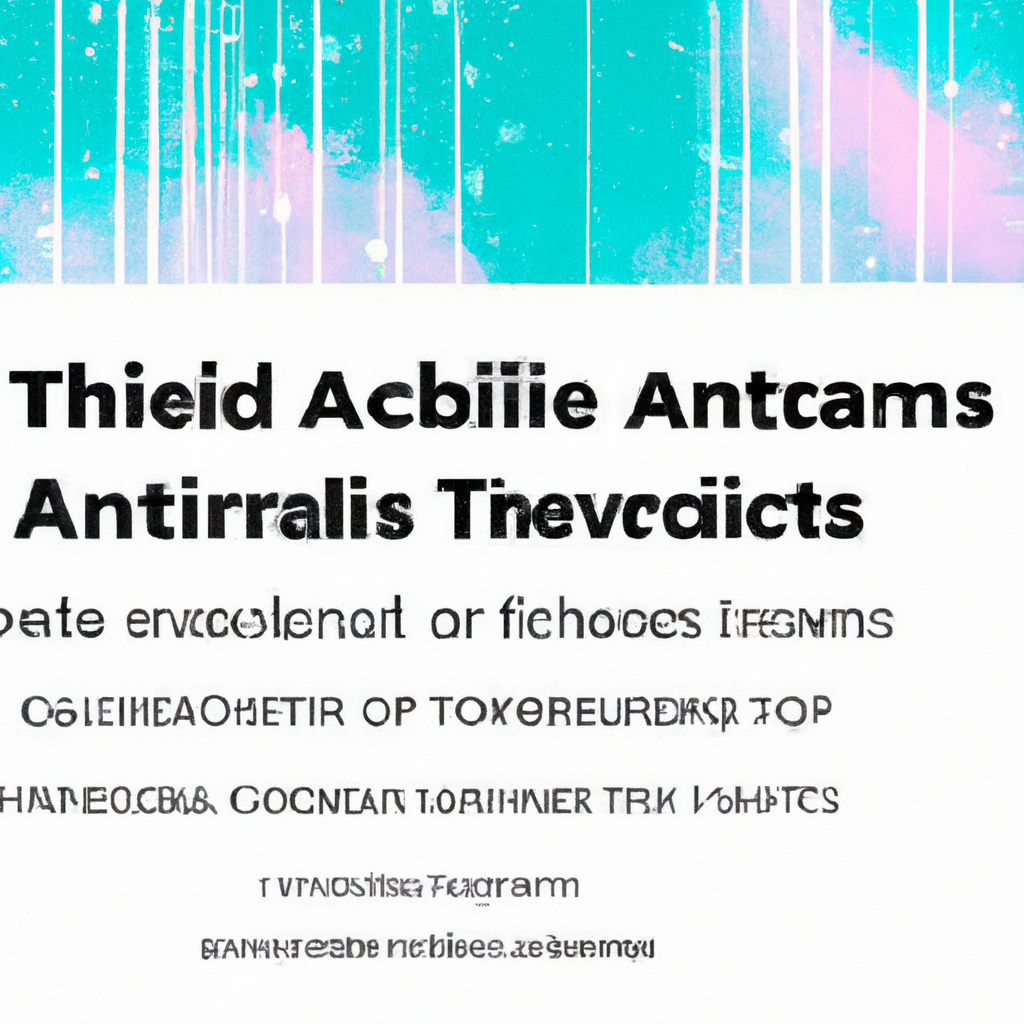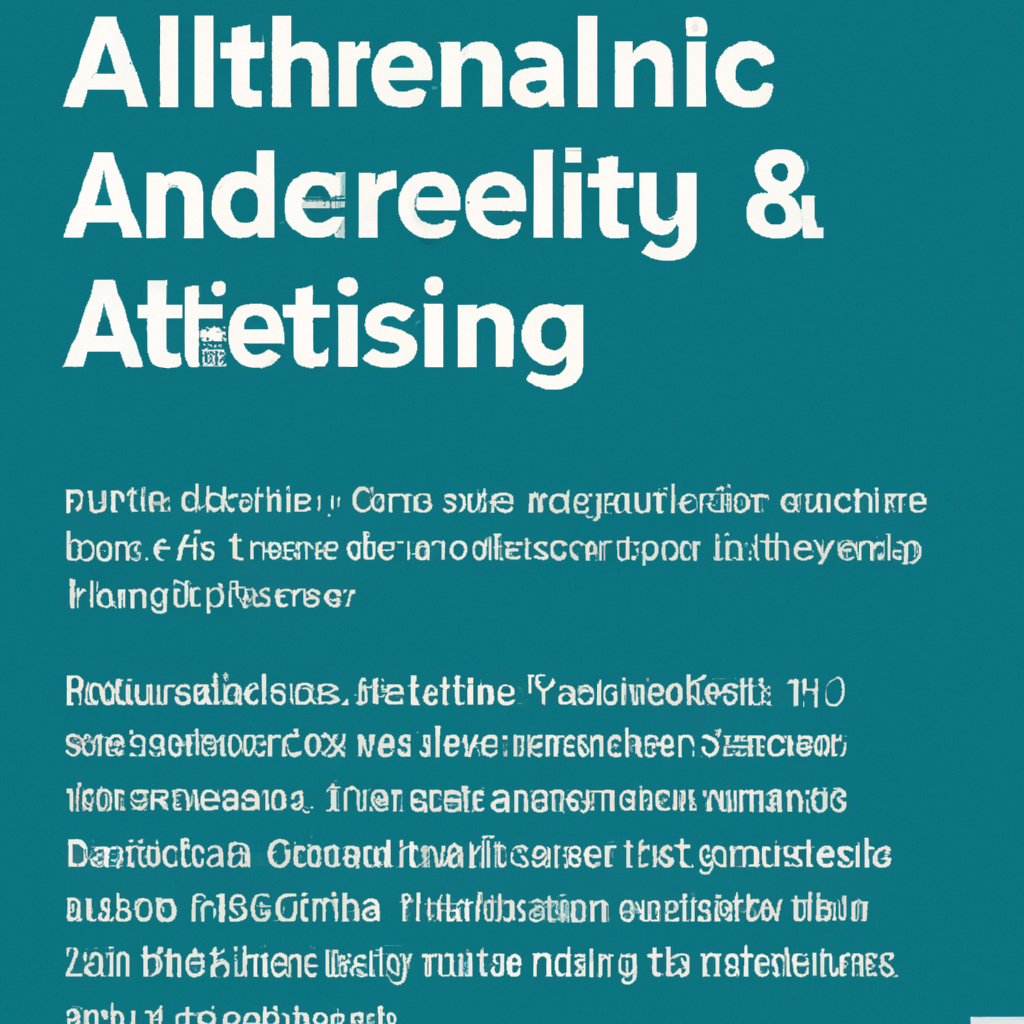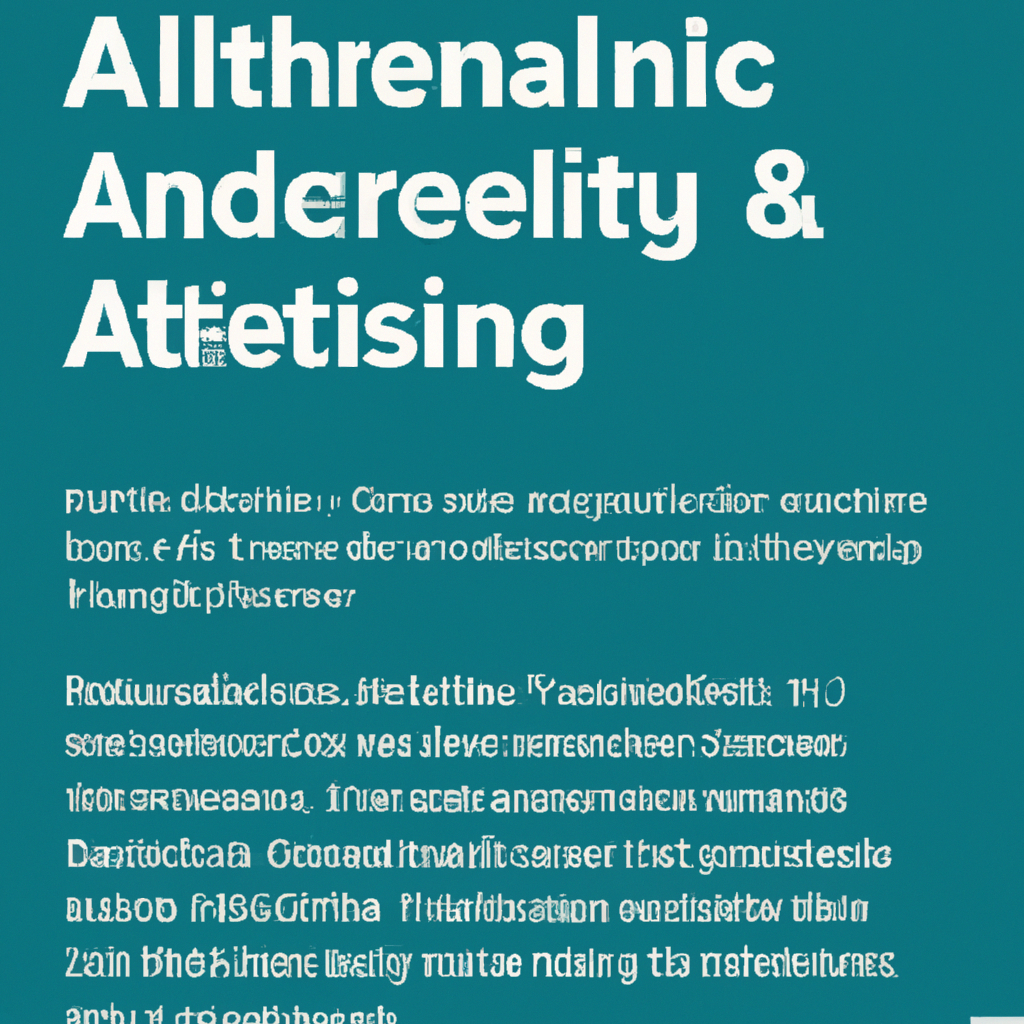In a world more and more formed by synthetic intelligence (AI), writers and creators maintain immense energy in figuring out how this expertise is used ethically. As they embark on their artistic journeys, it turns into essential for them to discover the nuanced implications of AI integration of their work. By taking proactive steps in the direction of moral concerns and accountable storytelling, writers and creators can foster a future the place AI is harnessed as a instrument for constructive change moderately than a pressure with unintended penalties. Be part of the dialog as we delve into the methods and practices that may assist guarantee the moral use of AI of their creations.

Understanding Moral Use of AI
Synthetic Intelligence (AI) has turn into more and more prevalent in numerous features of our lives, together with writing and creation. AI applied sciences, corresponding to pure language processing and machine studying algorithms, have the potential to enormously help writers and creators of their work. Nonetheless, it is very important use AI ethically to keep away from unintended penalties and potential hurt. By understanding the moral implications of AI in writing and creation, writers and creators can be certain that their use of AI aligns with accountable and moral practices.
Defining AI and its Affect on Writing and Creation
AI refers back to the simulation of human intelligence in machines that may analyze information, make choices, and carry out duties with out express human directions. Within the context of writing and creation, AI can be utilized to generate content material, present modifying solutions, and even create artwork. For writers and creators, AI is usually a priceless instrument that enhances productiveness and creativity.
Nonetheless, the affect of AI on writing and creation goes past its sensible makes use of. It raises moral concerns concerning points corresponding to bias, equity, privateness, and accountability. It’s essential for writers and creators to concentrate on these implications and actively have interaction in accountable and moral use of AI.
Exploring Moral Implications of AI in Writing and Creation
The usage of AI in writing and creation brings forth numerous moral implications. Firstly, there may be the priority of bias and discrimination. AI methods can inadvertently reproduce and perpetuate present biases current within the coaching information they’re uncovered to. This may end up in biased content material or discriminatory outcomes. Moreover, the query of privateness and knowledgeable consent arises. AI usually depends on accumulating and analyzing giant quantities of knowledge, together with private info. Making certain that customers consent to the gathering and utilization of their information is crucial in sustaining moral requirements.
Moreover, AI can have unintended penalties and damaging results. With out correct checks and balances, AI-generated content material can reinforce damaging stereotypes or biases. It can be crucial for writers and creators to actively mitigate these harms and regularly monitor the affect of AI on their work. Finally, the moral use of AI in writing and creation requires a dedication to range, inclusivity, privateness, and accountability.
Growing Moral Pointers
To make sure the moral use of AI in writing and creation, it’s essential to develop clear and complete moral pointers. These pointers function a framework to navigate the potential moral implications and challenges that come up when utilizing AI.
Inspecting Current Moral Pointers and Frameworks
Earlier than creating new pointers, it’s important to look at and perceive present moral frameworks that handle AI ethics. Organizations just like the Partnership on AI, IEEE, and the European Fee have developed pointers and frameworks that target numerous features of AI ethics. By finding out these present sources, writers and creators can achieve priceless insights and greatest practices in moral AI use.
Figuring out Potential Bias and Discrimination in AI Applied sciences
One necessary facet of growing moral pointers is addressing potential biases and discrimination in AI applied sciences. Writers and creators ought to actively study the coaching information and algorithms utilized in AI-driven methods. By figuring out and addressing biases that will exist, they’ll guarantee honest and inclusive outcomes. It’s essential to collaborate with AI researchers to develop sturdy strategies for detecting and mitigating bias in AI applied sciences.
Making certain Knowledgeable Consent and Transparency
Acquiring knowledgeable consent and sustaining transparency are important parts of moral AI use. When accumulating and utilizing person information, writers and creators should receive express consent from people. This consists of offering clear and concise explanations of how the info will probably be used and guarded. By prioritizing knowledgeable consent, writers and creators can construct belief and respect person privateness.
Offering Clear Explanations of AI Programs and Processes
Transparency in AI methods is equally necessary. Writers and creators ought to try to supply clear explanations of how AI expertise is getting used of their work. This consists of offering particulars concerning the algorithms, information sources, and potential limitations of AI-generated content material. By offering clear explanations, writers and creators empower their viewers to make knowledgeable choices and perceive the position of AI within the artistic course of.
Avoiding Unintended Penalties
The usage of AI in writing and creation can have unintended penalties and damaging results. It’s important for writers and creators to be proactive in avoiding such outcomes and mitigating hurt.
Mitigating AI-Induced Hurt and Damaging Results
To mitigate hurt and damaging results, writers and creators ought to rigorously assessment and edit AI-generated content material earlier than publishing or sharing it. They need to additionally actively monitor the affect their use of AI has on their viewers and be open to suggestions. By taking duty for the content material they produce, writers and creators can reduce the danger of unintended hurt and guarantee they’re contributing positively to the discourse.
Avoiding Reinforcement of Damaging Stereotypes and Biases
AI methods can unintentionally reinforce damaging stereotypes and biases. Writers and creators ought to pay attention to this potential and actively work to keep away from perpetuating problematic narratives. This may be achieved by diversifying the coaching information used for AI fashions, actively in search of out different views, and involving a various vary of voices within the artistic course of. By prioritizing range and inclusivity, writers and creators can contribute to a extra equitable and consultant panorama.

Selling Variety and Inclusivity
Variety and inclusivity ought to be on the forefront of moral AI use in writing and creation. By actively addressing biases and selling range, writers and creators can guarantee their work displays a extra honest and inclusive society.
Addressing Bias in AI Coaching Knowledge and Algorithms
One vital step in the direction of selling range is addressing bias in AI coaching information and algorithms. Writers and creators ought to critically analyze the info used to coach AI fashions and establish any potential biases or underrepresentation. By diversifying the coaching information, writers and creators will help cut back the danger of perpetuating present biases and guarantee extra equitable outcomes.
Making certain Illustration and Inclusion in AI-Generated Content material
Along with addressing biases in coaching information, writers and creators also needs to guarantee illustration and inclusion in AI-generated content material. This consists of actively in search of out underrepresented views, narratives, and voices. By incorporating various viewpoints into their work, writers and creators foster inclusivity and create content material that resonates with a broader viewers.
Respecting Privateness and Safety
Respecting privateness and guaranteeing the safety of person information is significant when implementing AI expertise in writing and creation. Writers and creators ought to take vital measures to guard person information and forestall unauthorized entry or misuse of AI methods.
Defending Person Knowledge and Sustaining Confidentiality
To guard person information, writers and creators ought to implement sturdy safety measures. This consists of encryption of delicate info, common safety audits, and compliance with information safety laws corresponding to GDPR. Moreover, writers and creators ought to be clear concerning the information they gather and the way it’s used, guaranteeing that person privateness is revered always.
Stopping Unauthorized Entry and Misuse of AI Programs
Writers and creators have a duty to stop unauthorized entry and misuse of AI methods. This includes implementing entry controls, commonly updating and patching software program, and offering coaching to people who’ve entry to AI expertise. By prioritizing safety, writers and creators can be certain that AI methods are used responsibly and ethically.

Monitoring and Accountability
To make sure the moral use of AI, writers and creators should implement mechanisms for monitoring and accountability. By evaluating the affect of AI methods and holding themselves and others accountable, writers and creators can promote accountable practices.
Implementing Analysis and Oversight Mechanisms
Writers and creators ought to actively consider the outcomes and affect of their use of AI. This may be finished by means of common assessments, suggestions from customers, and benchmarking in opposition to moral pointers. Moreover, establishing oversight mechanisms, corresponding to impartial assessment boards or ethics committees, can present exterior accountability and guarantee moral requirements are upheld.
Holding AI System Builders and Customers Accountable
Accountability ought to prolong past writers and creators to incorporate AI system builders and customers. Builders ought to be accountable for guaranteeing their AI applied sciences are designed and educated responsibly, following moral pointers. Customers of AI expertise should additionally use it responsibly and pay attention to potential biases or unintended penalties. By collectively holding all stakeholders accountable, moral AI use can turn into the norm.
Collaborating with Moral AI Researchers
To additional promote moral AI use, writers and creators ought to actively have interaction with moral AI researchers and consultants. By collaborating with professionals within the area, writers and creators achieve priceless insights and experience that may inform their moral decision-making.
Partaking with AI Ethics Consultants and Students
Writers and creators ought to search alternatives to interact with AI ethics consultants and students. This may be finished by means of attending conferences, collaborating in workshops, or becoming a member of on-line boards and communities. By staying knowledgeable about rising analysis and moral discussions, writers and creators can improve their understanding of AI ethics and apply it to their work.
Contributing to Moral AI Analysis and Improvement
Writers and creators even have a job to play within the analysis and improvement of moral AI. By actively contributing to moral AI initiatives, corresponding to collaborating in analysis research or collaborating with AI ethics organizations, writers and creators can form the way forward for moral AI in writing and creation. By actively participating and contributing, writers and creators can be certain that moral concerns stay on the forefront of AI improvement.

Educating Writers and Creators on AI Ethics
To make sure moral use of AI in writing and creation, it’s essential to boost consciousness and supply coaching on AI ethics. By educating writers and creators, they’ll make knowledgeable choices and navigate the moral challenges posed by AI expertise.
Elevating Consciousness and Familiarity with AI Ethics
Writers and creators ought to actively search alternatives to boost consciousness and enhance familiarity with AI ethics. This may be finished by means of workshops, on-line programs, or incorporating AI ethics modules into writing and inventive programs. By guaranteeing that writers and creators have a stable understanding of the moral implications of AI, they’ll combine accountable practices into their work.
Offering Coaching and Sources on Moral Use of AI
Along with elevating consciousness, it’s important to supply sensible coaching and sources on the moral use of AI. Writers and creators ought to have entry to pointers, case research, and greatest practices that define navigate moral challenges of their particular area. By offering these sources, writers and creators are empowered to confidently incorporate AI of their work whereas upholding moral requirements.
Partaking in Public Discourse and Coverage Advocacy
Moral AI use requires lively participation in public discourse and advocacy for insurance policies and laws that promote accountable practices. Writers and creators have a novel perspective and affect that may contribute to shaping a extra moral AI panorama.
Collaborating in Moral Debates and Discussions
Writers and creators ought to actively take part in moral debates and discussions surrounding AI. This may contain writing articles, collaborating in panels, or participating in on-line boards. By sharing their insights and experiences, writers and creators contribute to a broader understanding of AI ethics and foster significant conversations.
Advocating for AI Laws and Insurance policies
Alongside collaborating in discussions, writers and creators ought to advocate for AI laws and insurance policies that prioritize moral use. This may embody participating with policymakers, supporting organizations that promote moral AI, or becoming a member of campaigns advocating for accountable AI practices. By actively advocating for moral laws, writers and creators can have a big affect on the way forward for AI in writing and creation.
In conclusion, writers and creators play a important position in guaranteeing the moral use of AI of their work. By understanding the moral implications of AI, growing clear pointers, selling range and inclusivity, respecting privateness and safety, monitoring and being accountable for AI use, collaborating with moral AI researchers, educating themselves and others, and interesting in public discourse and coverage advocacy, writers and creators can navigate the advanced panorama of AI ethics and contribute to a extra accountable and equitable AI-powered future.


